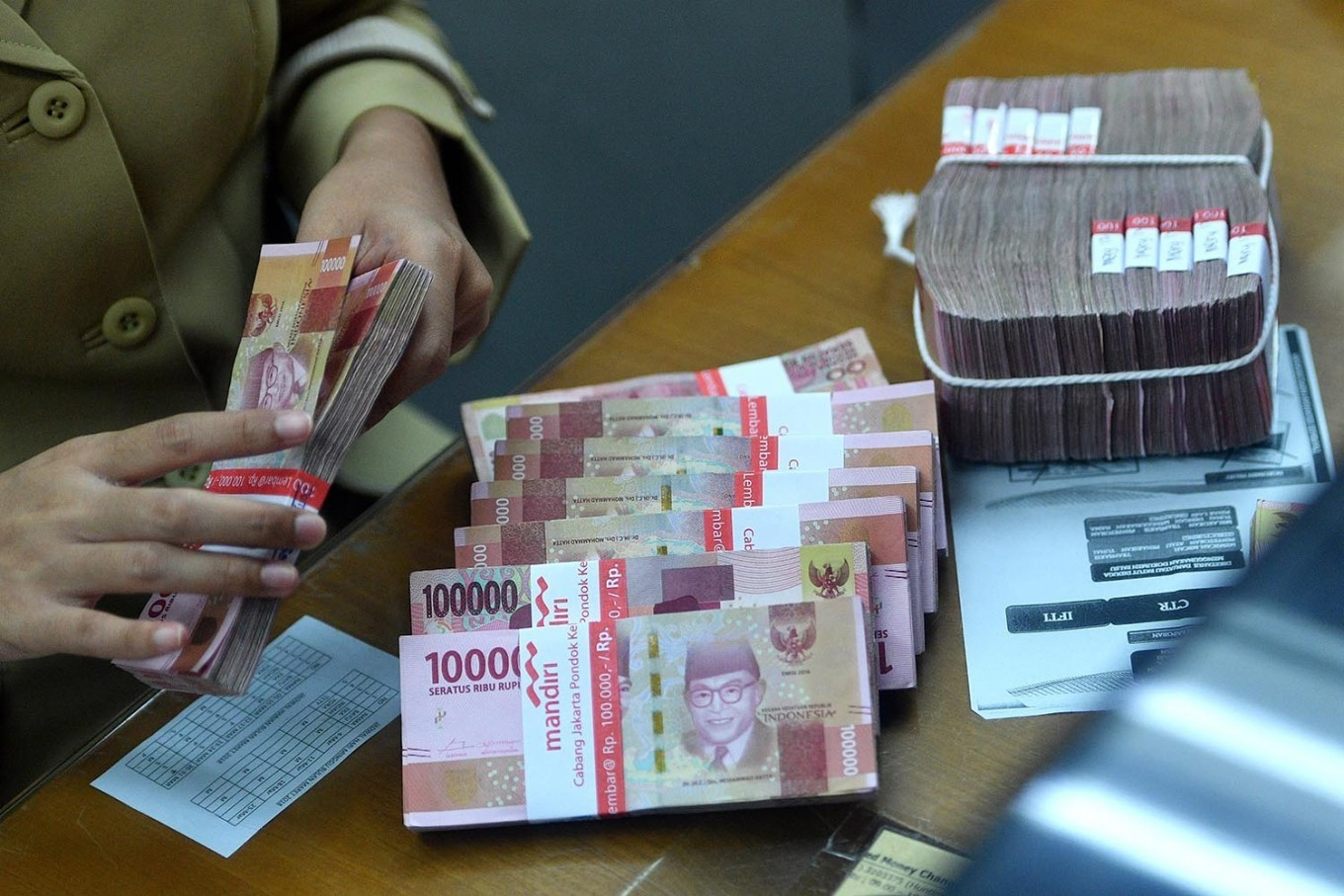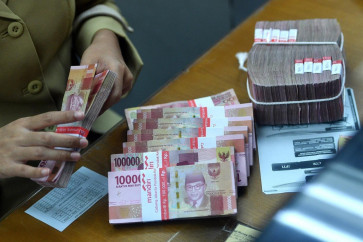Popular Reads
Top Results
Can't find what you're looking for?
View all search resultsPopular Reads
Top Results
Can't find what you're looking for?
View all search resultsAnalysis: Prabowo's first year sparks economic worries amid inflation, weak rupiah
Change text size
Gift Premium Articles
to Anyone
E
conomic Economic experts are increasingly pessimistic about Indonesia's economic outlook during President Prabowo Subianto's first year in office, according to a recent survey of 64 economists from diverse institutional backgrounds. Although sentiment improved in the second semester compared to the first, expectations for economic growth remain subdued, while inflationary pressures and labor-market challenges persist.
The survey, conducted by the University of Indonesia's Institute for Economic and Social Research (LPEM UI), indicates that experts believe the economy is showing early signs of overheating, driven primarily by accelerating inflation. Indonesia's inflation rate climbed from -0.09 percent year-on-year (yoy) in February to 2.65 percent yoy in September, largely due to rising food prices that pushed volatile inflation to 6.44 percent yoy.
A major source of price pressure can be traced down to Prabowo administration's flagship Free Nutritious Meals (MBG) program, aimed at providing free daily meals for schoolchildren and pregnant women. While intended to boost nutrition and agricultural demand, the program has intensified demand for key food commodities, contributing to price spikes for staples such as chicken and eggs. Statistics Indonesia (BPS) chief Amalia Adininggar Widyasanti warned in early October that egg prices had exceeded their government-set ceiling.
Survey results reflect skepticism toward the effectiveness and sustainability of key government initiatives. A large majority—47 of 64 economists (73 percent)—rated the MBG program as ineffective or unsustainable in meeting its social and economic goals. Only one respondent viewed it positively, while 13 held moderately negative views and three remained neutral.
Similarly, 38 economists (around 60 percent) expressed strong doubts about the Red-White Cooperatives initiative, another flagship program designed to expand micro, small, and medium enterprise (MSME) access to capital and integrate small producers into state-backed supply chains. Seventeen experts were especially critical, and none considered the initiative effective or sustainable.
These critiques highlight concerns over reliance on large-scale government spending amid fiscal constraints. Worsening matters, the Indonesian rupiah has continued to weaken throughout 2025, fueling market unease over the administration's economic direction. The currency has depreciated steadily from Rp 16,090 per US dollar (USD) at the start of the year to Rp 16,610 as of October 29, making it one of Asia's weakest currencies despite a relatively soft global USD environment. The depreciation has persisted even during periods of strong trade performance. Indonesia recorded a goods trade surplus of US$19.48 billion in the first half of 2025 — about US$3.9 billion higher than the same period last year — yet confidence in the rupiah remains strained.
Policy developments have added pressure. In early 2025, the government strengthened the mandatory foreign-exchange retention rule, extending the minimum holding period for export earnings (DHE) from three months to one year and raising the retention requirement for natural-resource exporters from 30 percent to 100 percent. Export earnings must now be kept in Indonesian banks for the full term. This applies to export proceeds from natural resource sectors including mining, plantations, forestry, and fisheries.



















